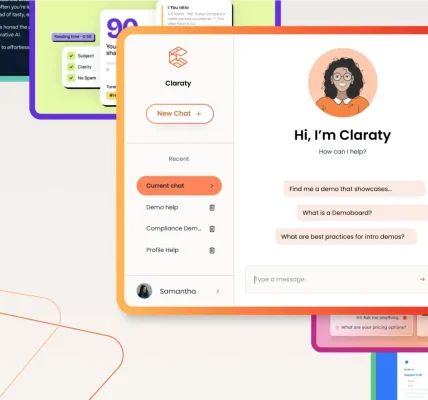Let’s be honest. The old sales playbook feels… clunky in the world of Web3. You can’t just blast cold emails, promise the moon, and expect a community of savvy, decentralized enthusiasts to care. The rules have changed. The power dynamic has flipped.
Think of it like this: selling in Web2 was like being a door-to-door salesperson. You had a script, a product, and a goal—close the deal. Selling in Web3 is more like being a community gardener. You don’t force the plants to grow; you nurture the soil, provide sunlight and water, and foster an environment where growth happens naturally. Your job is to cultivate, not command.
Why Web3 Sales is a Different Beast Entirely
Before we dive into the “how,” you need to grasp the “why.” The core philosophy of decentralization rewrites the sales equation. Here’s what you’re dealing with:
- Community is King (and Queen): In Web3, a project’s value is intrinsically linked to the strength and belief of its community. A vibrant, engaged community is your most powerful sales asset.
- Transparency is Non-Negotiable: Anonymous teams and vague roadmaps are immediate red flags. This ecosystem thrives on open-source code, clear communication, and verifiable actions.
- Value is Collective, Not Just Transactional: People aren’t just buying a product; they’re buying into a vision, a network, and often, a piece of the project itself through tokens. You’re selling participation.
- It’s a Global, 24/7 Conversation: The action happens on Discord, Twitter, and Telegram. It’s fast, it’s public, and your reputation is everything.
Core Sales Approaches for the Decentralized World
Okay, enough theory. Let’s get practical. Here are the fundamental sales approaches that actually work for Web3 and decentralized platforms.
1. The Community-First, Education-Forward Model
Forget “sales reps.” Think “educators” and “evangelists.” Your primary goal is to provide so much value that people are drawn to your project organically.
How do you do this?
- Create Stellar Content: Write threads that break down complex topics. Host Twitter Spaces with core contributors. Produce YouTube tutorials that show, don’t just tell. Your content shouldn’t just be about your project—it should be about the problems it solves for the ecosystem.
- Be the Helpful Voice in the Crowd: Spend time in relevant Discord servers. Don’t shill your token. Instead, answer questions, help newcomers, and share genuine insights. When you become a trusted resource, people will naturally check out what you’re building.
- Onboard with Empathy: The user experience in Web3 can be brutal. Simplify it. Create the clearest guides. Hold onboarding sessions. Hold their hand through the process. A smooth onboarding is a silent sales pitch that screams, “We care about you.”
2. Governance and Co-creation as a Sales Tool
This is a superpower unique to decentralized platforms. You’re not just selling a finished product; you’re inviting people to help build it.
By distributing governance tokens, you give users a literal stake in the outcome. They become ambassadors. They propose improvements, vote on decisions, and feel a deep sense of ownership. This transforms users from passive consumers into active, motivated sellers of the platform they help shape. It’s a virtuous cycle.
3. Strategic Partnerships and Ecosystem Building
No project is an island in Web3. The most successful ones are woven into the fabric of the ecosystem. Your “sales” target here is other projects.
Forming strategic partnerships—be it through token swaps, integrated functionalities, or shared liquidity pools—is a powerful sales approach. It instantly provides validation, cross-pollinates communities, and creates utility that wouldn’t exist in isolation. You’re not just selling your product; you’re selling its place in a wider, interconnected network.
A Practical Framework: The Web3 Sales Funnel
Let’s map this to a more traditional-looking funnel. It just operates very differently.
| Awareness (Top of Funnel) | Educational content, active social media presence, speaking at conferences (virtual and IRL), contributing to open-source. |
| Consideration (Middle of Funnel) | Engaging in Discord/Telegram, clear documentation, tokenomics explainers, testimonials from early users or partners. |
| Adoption (Bottom of Funnel) | Seamless onboarding, airdrops for early supporters, governance participation, and a fantastic product that delivers real value. |
| Advocacy (Post-Sale) | Rewarding community contributors, featuring user-generated content, implementing governance proposals. This loop feeds back into Awareness. |
Pitfalls to Avoid: The Web3 Sales Anti-Patterns
Just as important as knowing what to do is knowing what not to do. These missteps can kill your credibility instantly.
- The Rug Pull Vibe: Anything that feels manipulative or short-term—overhyping, anonymous teams, unrealistic promises—will be spotted a mile away and labeled a potential scam.
- Over-Promising and Under-Delivering: It’s better to ship a minimal viable product that works flawlessly than to promise a universe and deliver a black hole. The community has a long memory.
- Ignoring Feedback: If your community is raising concerns about a feature or a token model, and you dismiss them, you’re not listening. And in a space built on collective voice, that’s a fatal error.
- Treating Token Holders Like ATMs: Your token holders are your community, your users, your co-creators. If your only communication is about price or asking for more liquidity, you’ve already failed.
The Mindset Shift: From Salesperson to Architect
Ultimately, the most effective sales approach for Web3 isn’t a tactic or a script. It’s a fundamental mindset shift. You have to stop seeing yourself as a salesperson and start seeing yourself as an architect of a new digital city.
You’re laying the groundwork, designing the public squares (governance), and inviting people to build their own homes and businesses on your platform (ecosystem). Your success isn’t measured by a single transaction, but by the health, activity, and growth of the city itself. You’re not closing a deal; you’re founding a society.
And that, well, that changes everything.





